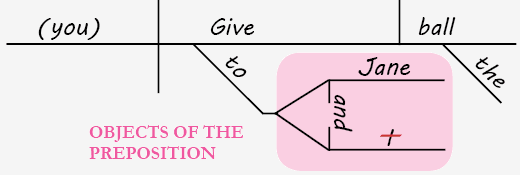|
|
| IMPROVE YOUR ENGLISH TUTORING SERVICES | June 2012 Newsletter |
In this issue:
|
| |||||||||||||||||||||||||||||||||||||||||||||||||||||||||||||||||||||||||||||||||||||||||||||||||||||||||||||||||||||||||||||||||||||||||||||||||||||||||||||||||||||||||||||||||||||||||||||||||||
University of California, Los Angeles |
|||||||||||||||||||||||||||||||||||||||||||||||||||||||||||||||||||||||||||||||||||||||||||||||||||||||||||||||||||||||||||||||||||||||||||||||||||||||||||||||||||||||||||||||||||||||||||||||||||
Want to attend your “dream school” and save your parents $112,000? That’s easy. Just study hard enough to get into UCLA. Or if you’re not admitted, try one of the two strategies below for a second chance. It won’t surprise readers of this column that three of the top ten“dream schools” are in California. The Princeton Review talked to more than 7,000 students who chose Stanford, UCLA, and USC as the schools they would choose if they could get in and pay the tuition. The annual cost of attending UCLA is just under $14,000; going to USC costs about $42,000 a year, not including housing. Since the cost of education at a private school is $28,000 more than it would be at UCLA or another UC campus, the four-year savings in tuition and living costs is an eye-popping $112,000—or roughly equal to the average loan debt after graduate school. Since UCLA surpasses USC academically in nearly every respect, it makes sense to drive thirteen miles west if your grades are good enough. Two other paths to UCLA Dr. Mary Lynn Wilson, an adjunct university professor and senior part-time tutor with Improve Your English, earned her PhD from UCLA. Her path in higher education began at Caņada Community College in San Mateo County. From there she transferred to UC Santa Cruz, where she graduated with a degree in English literature before attending graduate school. By attending a community college first, Dr. Wilson slashed her undergraduate college costs in half—another way to help out your parents in hard times. Some students not admitted the first time they apply can earn a UCLA diploma by transferring from another UC campus. However, this route is a much less common. Fewer than 800 of UCLA’s 16,000 transfer admissions come from other UC campuses. By comparison, more than 90% come from two-year community colleges. Similar programs are available to students at UC Riverside and other UC campuses. Keep in mind, though, that although a handful of students every year are admitted as juniors from other UC campuses, transferring from a community college with top grades in the most demanding classes is the best route. Transfer admission is no easier than admission as a freshman, but you have another chance to get in if you earn superlative grades as a college student. Stephanie Tong, a former Improve Your English student, transferred to UCLA from UC Merced. She will graduate in June. By the way, Stephanie used our Write It Right handbook when applying and tells us, “It was exactly what I was looking for at the time.” Top English writing skills are essential to get into UCLA. Stephanie says, “I transferred from UC Merced to UCLA with the Shared Experience Program. It was an undeclared-major-only offer that came with my admissions letter from UCLA. By accepting it, I agreed to complete my lower-division courses (GE) at the UC Merced campus as a UCLA student. “I had to work with a special academic counselor to make sure that courses I took at UC Merced would apply to major requirements at UCLA. As a program participant, I was guaranteed that I could transfer to UCLA upon completion of my second year as long as I maintained at least a 3.25 GPA. I also had the option to stay at Merced if I wanted.” UCLA is a great reason not to look outside the Golden State for your dream school. You’ll save a fortune on tuition, and the education you’ll receive is priceless. All you have to do is study hard.
Newsletter Table of Contents | More Newsletters | Back to Improve Your English |
|||||||||||||||||||||||||||||||||||||||||||||||||||||||||||||||||||||||||||||||||||||||||||||||||||||||||||||||||||||||||||||||||||||||||||||||||||||||||||||||||||||||||||||||||||||||||||||||||||
|
|||||||||||||||||||||||||||||||||||||||||||||||||||||||||||||||||||||||||||||||||||||||||||||||||||||||||||||||||||||||||||||||||||||||||||||||||||||||||||||||||||||||||||||||||||||||||||||||||||
| |||||||||||||||||||||||||||||||||||||||||||||||||||||||||||||||||||||||||||||||||||||||||||||||||||||||||||||||||||||||||||||||||||||||||||||||||||||||||||||||||||||||||||||||||||||||||||||||||||
|
|||||||||||||||||||||||||||||||||||||||||||||||||||||||||||||||||||||||||||||||||||||||||||||||||||||||||||||||||||||||||||||||||||||||||||||||||||||||||||||||||||||||||||||||||||||||||||||||||||
The difference between these two similar-sounding words can be hard to remember. Evoke is a transitive verb that means “to call up; cause to manifest; elicit or produce.” We can evoke things mentally or physically. Old trinkets—a pair of gloves, an empty perfume bottle, a stack of old notes—evoked in Williams’s mind the memory of a love long lost. The psychic claimed she could evoke a spirit from beyond the grave; however, skeptics later revealed her ruse.
Invoke, on the other hand, is a verb that means “to call upon, implore, or appeal to.” It is often used to describe the action of calling upon the divine.
The starving man, in his desperation, invoked every god he could think of.
However, it can also mean “to conjure (spirits) through incantation or charm.” Notice that this definition is very similar to one meaning of evoke. In this case, the two words can be used interchangeably.
Prospero invokes Ariel, a spirit, to assist him in foiling Caliban. If we look at Latin roots, we can understand the meaning of each word. Evoke comes from the Latin word evocare, which comes from the prefix ex- (out) and the verb vocare (to call). Thus we can think of evoke as meaning “calling out.” Invoke comes from the Latin invocare, which comes from the prefix in- (on, upon) and the verb vocare. We can think of it as translating into “call upon.” Here are some other verbs derived from the same root:
Newsletter Table of Contents | More Newsletters | Back to Improve Your English |
|||||||||||||||||||||||||||||||||||||||||||||||||||||||||||||||||||||||||||||||||||||||||||||||||||||||||||||||||||||||||||||||||||||||||||||||||||||||||||||||||||||||||||||||||||||||||||||||||||
|
RECOMMENDED
READING
|
Hard-boiled L. A. Fiction
by Steve High Although it is possible to look at the Los Angeles area as a sunny, cheerful, and upbeat place typified by Disneyland and 30 miles of beaches, its most characteristic literature is dark, grim, and pessimistic. The poet Charles Bukowski, who lived and died in L. A., once said, “My beerdrunk soul is sadder than all the dead Christmas trees of the world.” “The rattlesnake in the playpen” is an unforgettable phrase in Joan Didion’s Hollywood novel Play It As It Lays. But Los Angeles literature is darkest in its crime fiction. Although once dismissed by critics, the hard-boiled fiction of such L. A. writers as Raymond Chandler and James M. Cain is now the stuff of PhD dissertations. And these writers have earned the ultimate tribute from readers—their works are still in print. Sheldon Sacks, a pioneering member of the University of Chicago’s school of criticism, wrote “The Pursuit of Lew Archer.” In this scholarly piece, he praised not just detective writer Ross McDonald but also the genre of hard-boiled detective fiction itself, which explores the riddle of “permanent human significance.” McDonald himself said that Chandler writes “like a slumming angel and invested the sun-blinded streets of Los Angeles with a romantic presence,” a judgment echoed by Joyce Carol Oates, the poet, critic, and Princeton professor, who has said that Chandler’s prose “rises to heights of unselfconscious eloquence.” L. A. was the home of Cain and Chandler for the same reason: both were attracted not only by the city’s abundant source material but also by Hollywood dollars. James M. Cain said he wrote The Postman Always Rings Twice because “I needed money but quick.” He gets Postman off to a quick start with this first sentence: “They threw me off the hay truck about noon.” Albert Camus begins The Stranger with equal speed: “Maman died today. Or yesterday maybe, I don’t know.” And no wonder. Camus acknowledged that he based The Stranger on The Postman Always Rings Twice. Cain found the wealth he sought when Hollywood studios bought Postman and others of his novels and turned them into popular films. Cain survived four wives and wrote until his death at 85. Not entirely by coincidence, Raymond Chandler earned the good money he was looking for in California when he adapted The Postman Always Rings Twice for the screen. Chandler, one of the most influential writers of the last century, wrote of Los Angeles: Down these mean streets a man must go who is not himself mean, who is neither tarnished nor afraid. . . . He talks as the man of his age talks, that is, with rude wit, a lively sense of the grotesque, a disgust for sham, and a contempt for pettiness. Although enlivened by wit and extravagant metaphor, the novels of Chandler and Cain and other hard-boiled L. A. writers are essentially dark. Richard Widmark narrates a fascinating documentary of Los Angeles depression-era corruption as Raymond Chandler found it. Chandler’s life ended in misery. He attempted suicide in 1955 and died of drink in 1959. The only recording of his voice, slurred by alcohol, is in the BBC archives. The interviewer is a young Ian Fleming, who had just created James Bond. Raymond Chandler left a rather modest estate of $60,000, which his heirs fought over. This unseemly outcome would not have surprised him—not in L. A. Newsletter Table of Contents | More Newsletters | Back to Improve Your English |
|
|
info@improveyourenglish.com
Copyright 2003-2013 IYE, Inc. All rights reserved.





